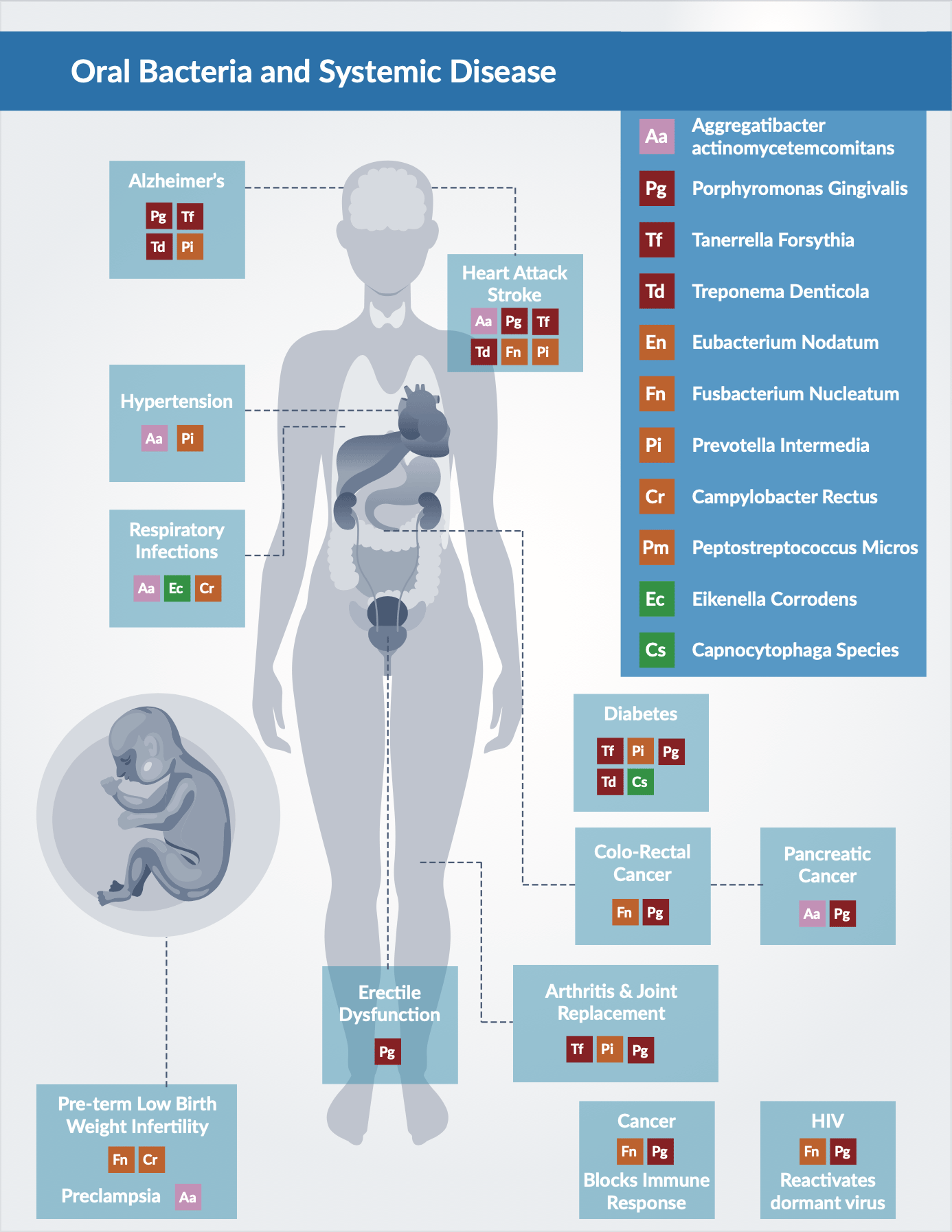
Veneer Smile Makeover with Kane Lim from Bling Empire
Veneer Smile Makeover with Kane Lim from Bling Empire
Oral DNA testing is one of the tricks and tools we use in treating gum disease more efficiently and more effectively. There are thousands of different types of bacteria in your mouth, but seven of those bacteria specifically can cause major infections in the gums and the bones around the teeth.
With the Oral DNA kit, we have the ability now test for these specific types of bacteria. The process is simple and can be done as part of your regular cleaning visit. You’ll rinse with a saline solution for 30 seconds, spit into a test tube, which is then sent to the Oral DNA lab for testing. They’ll provide accurate levels of bacterial counts and can help us prescribe antibiotics based on your specific needs.
Oral DNA testing shows us the exact kinds of bacteria present in your mouth. This information tells us if you are more susceptible to certain kinds of gum disease and tooth decay. If we find that certain dangerous and destructive bacteria are present in your mouth, we can use specific antibiotic therapy to target and destroy these bacteria.
Sometimes patients have a chronic infection, chronic gum disease, or problematic bad breath that they can’t seem to get rid of. We use Oral DNA testing to find out if there is a certain bacterium that is the underlying cause of these problems. Also, gum disease has a genetic link, and Oral DNA testing will reveal if you are genetically susceptible to developing gum disease.
Westlake Smile Studio works with OralDNA Labs to do two different types of DNA testing: MyPerioPath and MyPerioID.
The MyPerioPath test identifies the specific bacteria present your mouth. If your mouth is infected with the types of bacteria that cause gum disease, Westlake Smile Studio will customize your treatment to eliminate the specific types of harmful bacteria present in your mouth.
The MyPerioID test determines if you are genetically predisposed to develop gum disease. If we find that you have this genetic predisposition, we will customize your hygiene plan to help you prevent future development of the disease.

Sign up for our newsletter so you never miss our latest blog post.

Veneer Smile Makeover with Kane Lim from Bling Empire

Veneer Smile Makeover with Cherie Chan from Bling Empire

Invisalign: An Adult Answer To Straightening Teeth Orthodontic treatment is often thought of as something only children and teenagers need, but the reality is that